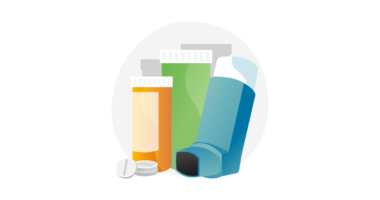The American College of Allergy, Asthma and Immunology and the American Academy of Allergy, Asthma and Immunology provide this guidance on coding for FDA approved Oral Immunotherapy for Peanut Desensitization (OIT). This replaces any previous guidance our organizations have published related to OIT and incorporates 2021 changes in CPT coding for evaluation and management services and use of prolonged service codes.
Coding for Oral Immunotherapy for Peanut Desensitization Services
There are no specific codes for reporting peanut OIT services. Accordingly, allergy practices may want to check with the health plan or payer on appropriate coverage, coding, and reimbursement of peanut OIT services. We suggest that guidance from payers be confirmed in writing so that, in the event of an audit, practices will have resources available to justify the coding choices made. Having said that, the ACAAI and AAAAI have considered various options for reporting of this therapy to health plans and payers. The result of this joint deliberation are the following options for consideration for coding Food and Drug Administration (FDA) approved peanut OIT services:
Initial OIT visit: the initial escalation visit may be considered a challenge to determine the level of sensitivity if the patient has not had a challenge performed in the recent past. In that case, it may be appropriate to use the ingestion challenge codes:
- CPT® 95076: Ingestion challenge test (sequential and incremental ingestion of test items e.g., food, drug or other substance); initial 120 minutes of testing; and
- CPT® 95079: each additional 60 minutes of testing (List separately in addition to code for primary procedure).
The time, which should be documented, is the number of minutes the patient is in the office beginning with initiation of the procedure. There must be documentation for total time involved in the challenge. It may be advisable to document the start and stop time. The codes (95076 and 95079) do not require a specific number of minutes of physician time. However, the physician must be in office, and this should be included in the documentation.
If it is not appropriate to use the ingestion challenge codes for the initial escalation visit, then we recommend you use the office evaluation and management (E/M) codes as described below.
Up-dosing phase: this is most appropriately coded using an E/M code plus prolonged service code(s) if needed.
Selection of Appropriate Patient E/M Code:
Beginning January 1, 2021, E/M codes can be selected based on complexity of medical decision making (MDM) or physician face-to-face and non-face to face time involved on the day of the patient encounter. Unlike the ingestion challenge codes, only physician time can be counted if coding is based on time.
Use of Prolonged Service Codes:
Non-Medicare
Effective January 1, 2021, prolonged service code CPT 99417 is reportable for each 15 minutes of physician time beyond time captured by the level 5 office E/M codes (i.e., 99205 or 99215). Use CPT Code 99417 for each 15 minutes in excess of 75 minutes for 99205 and 55 minutes in excess of 99215.
Prolonged service of less than 15 minutes should not be reported.
Medicare
Medicare has implemented a G code (G2212) for reporting prolonged services, rather than using the new CPT 99417 prolonged service code. For Medicare beneficiaries, use HCPCS G2212 for each 15 minutes in excess of 89 minutes for 99205 and in excess of 69 minutes for 99215.
Do not report prolonged service time of less than 15 minutes.
Please note
Allergy practices should follow health plan and payer policies for your practice for coverage, coding, and reimbursement of peanut OIT services, where available, even though they may differ from the above.


